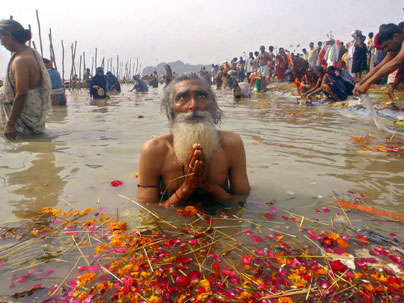 मैं उसकी माँ एक बच्चे के रूप में आपके पास आया,
मैं उसकी माँ एक बच्चे के रूप में आपके पास आया, mein uski maa ek bachcha ke hap mai aapka paas aaya,
I come to you as a child to his mother,
मैं तुम्हें एक अनाथ, प्यार से नम के रूप में आते हैं.
mein tumhein ek anaabh, pyaar se nam ke hap mai aale hain.
I come to you as an orphan, moist with love.
मैं तुम से शरण के बिना, पवित्र आराम के दाता.
mein tum se sharnna ke bhina, paweer aaram ke data.
I come without refuge to you, giver of sacred rest.
मैं तुम से एक आदमी आ गिरा, सभी के अंत्योदय,
mein tum se ek aadmi aa gira, sabhi ke antodaya,
I come a fallen man to you, uplifter of all,
मैं रोग से आप को पूर्ववत आया, सही चिकित्सक,
mein reg se aap ke puviivat aaya, sahi chikitsak,
I come undone by disease to you, the perfect physician,
मैं आ गया, मेरा दिल प्यास से सूखे, तुम, मीठी शराब के सागर,
mein aa gaya, sera dil pyaar se sukhe, tum imith sharab ke sagar,
I come, my heart dry with thirst, to you, ocean of sweet wine.
मेरे साथ क्या तुम जो भी होगा
mere sabh kya tum jaye bhi hega.
Do with me whatever you will.
These are the words of the Ganga-Lahiri (गंगा लाहिड़ी), or Waves of Ganga, a famous poem by 17th century Brahmin (ब्राह्मण) poet Jagannatha (जगन्नाथ). Jagannatha broke the laws that forbade upper-caste Brahmins from consorting with lower castes when he fell in love with a Muslim girl. Though he tried to explain the transcendence of love to his elders, he was exiled from his pious Hindu community. He then traveled to Varanasi, India's most sacred city, and sat along the ghats of the Ganges river. Perched on the 52nd step, he composed 52 verses dedicated to the river. The story goes that with every line, the Ganges rose a step, finally consuming him at the end of his final verse.
The allegory of the Ganga is a beautiful myth indeed, but it is so long that I will have to dedicate a separate post to it. The Ganges river is a symbol of purification, womanhood, motherhood, and guardianship. Devout Hindus believe that bathing in the Ganges will wash away their sins, and that if one's body is cremated on her banks he will break the karmic cycle and escape the world's suffering.
Unfortunately, the river is facing a crisis of pollution. (These days, do you expect anything otherwise?)
The 1,560 miles of the Ganges run through one of the most densely populated regions in the world. Over one-third of all Indians (think: all the people in America) live along the river in the Gangetic Basin. Most people do not have sewage or sanitation facilities, meaning that millions of gallons of raw sewage are dumped into the sacred river each day.
The Ganges Action Plan, launched in 1985, was an ambitious attempt to clean up the river. But it was poorly executed and resulted in failure. The Ganges is now nearly twice as polluted as it was twenty years ago. In addition, a recent government audit discovered that corrupt officials had long been siphoning off funds from the project.
It look as though it will likely be a while before the river goddess' waters are as clean as Hindu pilgrims believe them to be.
No comments:
Post a Comment